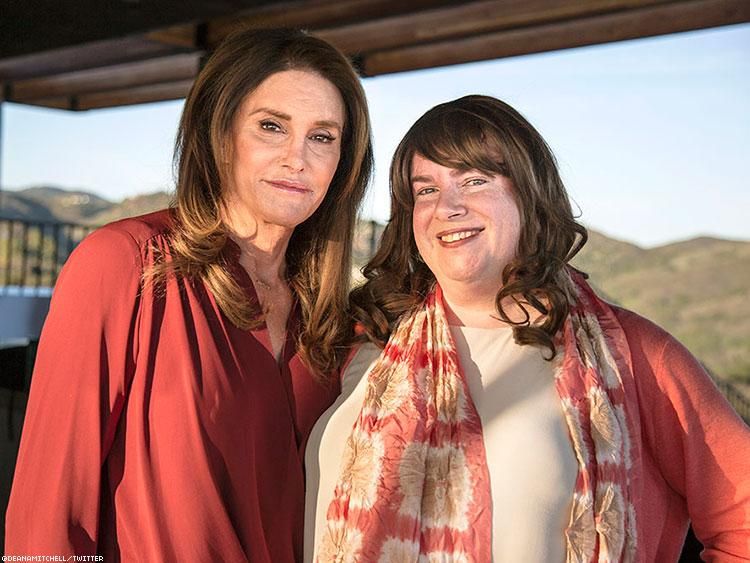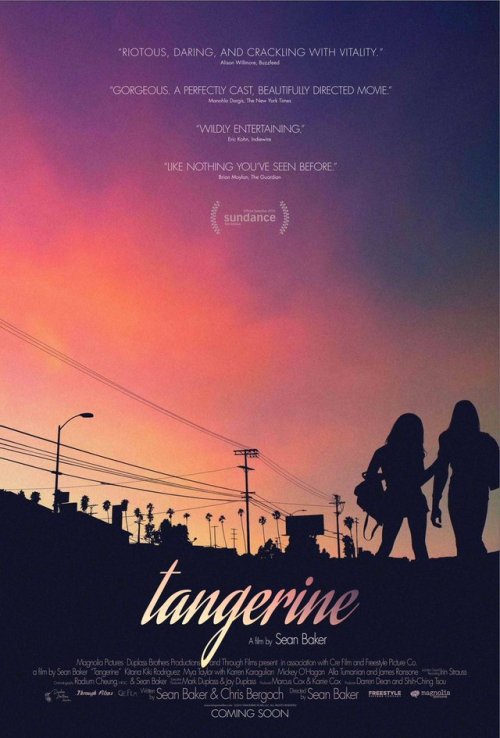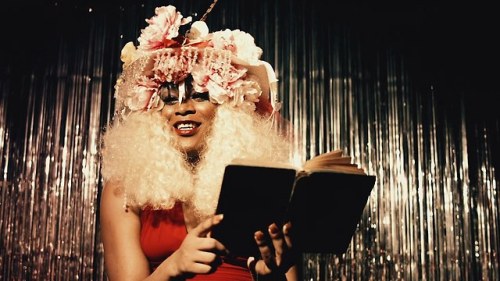#mya taylor
Films in 2018#130Happy Birthday, Marsha!, 2017. Directed by Reina Gossett & Sasha Wortzel
★★★★★★★ - - -
Post link

Check it out here.
An open letter to The Academy:
Hey guys. How’s it going? Congratulations on getting your nominations out. I’m sure that your staff worked tirelessly to collect the ballots and organize the press events. And your colleagues at PricewaterhouseCoopers were probably under a lot of pressure as they counted the votes. Does Pricewaterhouse Coopers still count the votes? I know that they did. I know this because I knew everything about your awards ceremony when I was a kid. I owned every book about your history, I started printing ballots as soon as I figured out how to use a printer, and I could recite some acceptance speeches by heart. Yup, I liked you. I really liked you.
I fantasized about winning one of your awards; I practiced my surprise face in the mirror (wide, teary eyes with a hand over my open mouth). I thought that if I worked hard enough, if I honed my talent, that one day I could be good enough to sit among you.
I didn’t see a reflection of myself among your nominees. That doesn’t matter, I thought. I’ll be the exception. I’ll be the first.
I cheered as other exceptions were ushered into your elite club. I cried as I watched Halle Berry accept her statue, I screamed when Mo'Nique won for Precious, and even though Rita Moreno first held her Oscar almost two decades before I was born, I would stare at pictures of her in your backstage press room thinking that maybe one day that could be me. I’ll be the exception. I’ll be the first.
Earlier this year Kerry Washington said “[We] have been pitted against each other and made to feel like there are limited seats at the table for those of us that fall into the category of ‘other’… As ‘others’ we are taught to be successful we must reject those ‘other others’ or we will never belong.”
I watched your nominations come out today. All white acting nominees, two years in a row. You pulled your very own Tom Hanks. And in doing so, you have minimized the already limited number of seats. A dystopian game of musical chairs.
I see that Mya Taylor,Idris Elba,Benicio del Toro,Oscar Isaac,Shameik Moore,Zoë Kravitz,O'Shea Jackson, Jr.,Teyonah Parris,Will Smith,Nick Cannon, and Samuel L. Jackson didn’t make it onto one of your limited chairs. And their performances were eligible. But do you have categories for performances that don’t exist because a producer didn’t want to ‘go ethnic’? Will you include honors for roles that weren’t even conceived because a writer thought ‘there’s no actor good enough to play that role’? Do you give out acting awards to kids who gave up acting because they didn’t see reflections of themselves? If you want to stick around for another few decades, maybe you should.
Do you think that by getting Chris Rock to host helps? Nah, I’ll be watching one of his brilliant comedy specials instead.
You are a very powerful organization. One that I once worshiped. But if you keep limiting the seats at the table, eventually we’re just going to find another table.
Dylan Marron
Starring Mya Taylor, Kitana Kiki Rodriguez, and Karren Karagulian
Directed by Sean S Baker

Sin-Dee Rella (Rodriguez), a transgender prostitute, is released from prison on Christmas Eve after 28 days. Her best friend Alexandra (Taylor), another transgender sex worker, accidentally reveals that Sin-Dee’s pimp and boyfriend Chester cheated on her while she was away. Angered, Sin-Dee searches her neighborhood in Los Angeles for Dinah, Chester’s rumored mistress. Meanwhile, Razmik (Karagulian), an Armenian taxi driver and frequent customer of transgender prostitutes, purchases services from Alexandra. She tells him about a singing performance she has coming up, and that Sin-Dee will be there. Excited to see Sin-Dee, he leaves his family at dinner to go to the performance, ultimately getting caught up in drama.
This film does an excellent job of exploring racial and sexual discrimination and disparities. Sin-Dee and Alexandra are discriminated against for being both black and transgender. When the police arrive to break up Alexandra’s argument with a customer, they address her as “Alexander.” Dinah calls Sin-Dee racial slurs when their fight breaks out. A group of men dump urine on Sin-Dee, exclaiming, “Tranny!” Sin-Dee also stresses that Chester cheats on her with white, cisgendered Dinah, calling her “real fish”. She feels particularly invalid because Dinah’s elevated social position. The friends face discrimination as sex workers, as well, highlighted by a “we don’t serve prostitutes” sign in the neighborhood. People also discriminate against the clients of transgendered sex workers. When Razmik turns down a cisgendered woman, she angrily calls him a “homo.” When Dinah finds out about Chester’s engagement to Sin-Dee, she mocks him with homophobic slurs. Transgender women are so marginalized that even those attracted to them are considered less than. I actually found the most interesting element of the film’s portrayal of oppression and discrimination to be how it brings people together. Sin-Dee and Dinah, two women who have every reason to hate one another, begin to bond over similar discrimination towards sex workers. One of Razmik’s customers, an indigenous American, expresses solidarity with Razmik, relating the struggles of Native Americans to that of immigrants. Razmik’s mother-in-law gets into the cab of complete stranger, but he treats her like family because of their shared Armenian heritage. In the film’s closing scene, Alexandra takes off her wig and gives it to Sin-Dee, demonstrating love and understanding due to their shared struggle. Baker (dir) illustrates how people flock to those who suffer similarly.
After recalling a childhood memory about a broken toy, Alexandra proclaims that “the world can be a cruel place.” Sin-Dee immediately agrees, explaining that if things were fair, she wouldn’t have been born with a penis. Baker continues to demonstrate the cruelty of the world throughout the film. After Alexandra is cheated out of money by a customer, she exclaims that this has already happened several that month, so she is “tired of being so fucking nice to people.” The universe if unfair, treating her poorly when she only offers kindness. When confronting Chester, we learn Sin-Dee was arrested for and ultimately imprisoned for a crime Chester should have gone down for. She has to pay the price for others’ mistakes. In the film’s closing, Dinah heads back to the brothel Sin-Dee took her from. She is turned away, rendering her (to the viewer’s knowledge) homeless.
Tangerine is a truly modern movie. Following the lead of hits like Orange is the New Black, the actors are not classically attractive and accurately represent the characters the play (Karagulian is actually Armenian, Taylor is actually trangender, etc). The in depth, dynamic exploration of gender and racial issues is characteristic of modern social thought. The boppy soundtrack and uncouth dialogue convey accurately contemporary, urban inelegance. Tangerine was also shot completely on an iPhone 5s, speaking to modern accessibility and universality of high-grade technology.
This films connection with the iPhone is more interesting than additive. I can only image how much stronger the visuals would have been with real movie cameras. The acting is generally impressive, but I believe Rodriguez’s performance falls short. These issues aside, I’m a fan of Tangerine. I suspect it will be particularly well received amongst younger (adult) audiences.
17/20


